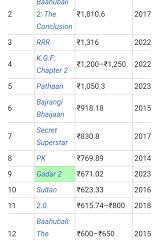Dune: A Cinematic Masterpiece Based on Frank Herbert’s Novel

Introduction to Dune
Dune, directed by Denis Villeneuve, has emerged as one of the most talked-about films of 2021, bringing Frank Herbert’s iconic science fiction novel to life. The importance of Dune in contemporary cinema cannot be overstated, as it marks a significant resurgence of the science fiction genre in mainstream filmmaking. The film’s visual grandeur, combined with a compelling narrative and rich world-building, resonates with audiences globally, making it a crucial analysis point in modern cinema discussions.
The Plot and Setting
Dune is set in a distant future, where interstellar travel and powerful feuding noble houses define the universe. The story follows young Paul Atreides, played by Timothée Chalamet, heir to House Atreides, as his family takes control of the desert planet Arrakis, the only source of the coveted spice melange. This spice is essential for space travel and grants psychic abilities, heightening the stakes of political intrigue, betrayal, and survival on a planetary scale.
Critical Reception
The film has received an overwhelmingly positive response from critics and audiences alike. It has been praised for its stunning cinematography, powerful performances (including those by Rebecca Ferguson, Oscar Isaac, and Zendaya), and a hauntingly beautiful score by Hans Zimmer. On Rotten Tomatoes, Dune boasts an impressive approval rating, testament to its craft and influence. As of October 2023, it has earned over $400 million globally, redeeming its unprecedented production budget and pulling audiences into theatres.
Cultural Impact and Significance
Dune’s significance extends beyond its box-office success; it showcases the growing trend of adaptations from literature into feature films. The film sparks conversations about themes of power, ecology, and humanity, relevant in today’s societal context of climate change and geopolitical tensions. Furthermore, its production design has inspired a new wave of science fiction aesthetics in cinema.
Conclusion and Future Outlook
As audiences await a sequel to explore more of Herbert’s intricate universe, Dune has cemented its place in cinema history as a contemporary classic. Its ability to blend art, philosophy, and thrilling storytelling provides a unique experience for viewers, encouraging deeper reflection on both the narrative and its greater implications. As the film industry continues to explore ambitious adaptations, Dune serves as a benchmark for quality, enforcing the idea that bold storytelling can lead to both commercial and critical triumph.









